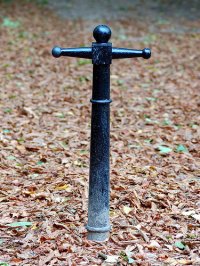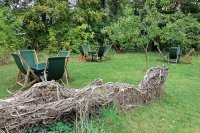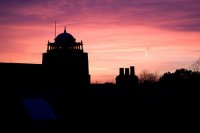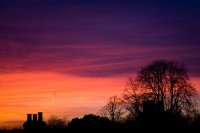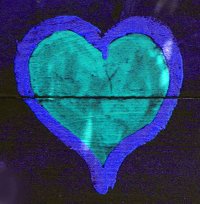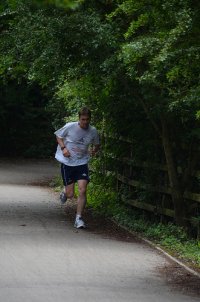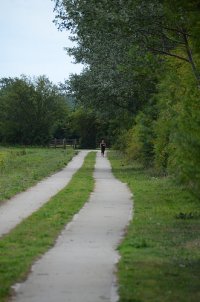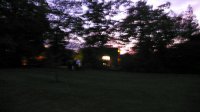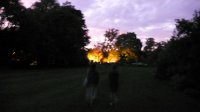-
You are here:
- Homepage »
- United Kingdom »
- England » Toft

Toft Destination Guide
Discover Toft in United Kingdom
Toft in the region of England is a town located in United Kingdom - some 47 mi or ( 76 km ) North of London , the country's capital .
Local time in Toft is now 07:29 AM (Sunday) . The local timezone is named " Europe/London " with a UTC offset of 0 hours. Depending on your flexibility, these larger cities might be interesting for you: Toft, Reading, Peterborough, Papworth Everard, and Oxford. When in this area, you might want to check out Toft . We found some clip posted online . Scroll down to see the most favourite one or select the video collection in the navigation. Are you looking for some initial hints on what might be interesting in Toft ? We have collected some references on our attractions page.
Videos
Mike M0SAZ QSO with Mohamad HZ1MD on 17m SSB Portable
24/10/2010 - I had a really good day of simulated portable operating in Cambridge. I was indoors but was using a 2x 12v 7Ah batteries in parallel and aa travel delta loop in the garden, made by Ray (p ..
Cathedral's Express - Britannia 70000 at Shepreth August 20th 2011
Cathedrals Express on the return leg from Norwich leaves Shepreth, near Royston, after a water stop en route to King's Cross, London. This is the first time a steam train has stopped at Shepreth since ..
Bring On the Bandstand.mov
The building of the bandstand and other preparations for Beyond the Icehouse 2011. Music by the Checkbacks ..
video1.mov: Walk down from Dry Drayton
See the entire trip at www.everytrail.com. ..
Videos provided by Youtube are under the copyright of their owners.
Interesting facts about this location
Mullard Radio Astronomy Observatory
Mullard Radio Astronomy Observatory (MRAO) is home to a number of large aperture synthesis radio telescopes, including the One-Mile Telescope, 5-km Ryle Telescope, and the Arcminute Microkelvin Imager.
Located at 52.17 0.03 (Lat./Long.); Less than 4 km away
Cosmic Anisotropy Telescope
The Cosmic Anisotropy Telescope (CAT) was a three-element interferometer for cosmic microwave background radiation (CMB/R) observations at 13 to 17 GHz, based at the Mullard Radio Astronomy Observatory. In 1995, it was the first instrument to measure small-scale structure in the cosmic microwave background. When the more sensitive Very Small Array came online, the CAT telescope was decommissioned in a ceremonial bonfire.
Located at 52.17 0.03 (Lat./Long.); Less than 4 km away
4C Array
The 4C Array is a cylindrical paraboloid radio telescope at the Mullard Radio Astronomy Observatory. It is similar in design to the Molonglo Observatory Synthesis Telescope. It is 450 m long, 20 m wide, with a second, moveable element (now mostly removed; some of it is still visible, beyond COAST).
Located at 52.16 0.03 (Lat./Long.); Less than 4 km away
Half-Mile Telescope
The Half-Mile Telescope was constructed in 1968 (2 aerials) at the Mullard Radio Astronomy Observatory with two more aerials being added in 1972, using donated dishes (total cost was £70,000). Two of the dishes are fixed, while two are moveable and share the One-Mile's rail track; to obtain information from the maximum number of different baselines, 30 days of observing were required. Observing frequency 1.4 GHz (21 cm wavelength), bandwidth 4 MHz.
Located at 52.16 0.04 (Lat./Long.); Less than 4 km away
Cambridge Low Frequency Synthesis Telescope
The Cambridge Low-Frequency Synthesis Telescope (CLFST) is an east-west aperture synthesis radio telescope currently operating at 151 MHz. It consists of 60 tracking yagis on a 4.6 km baseline, giving 776 simultaneous baselines. These provide a resolution of 70×70 cosec(declination) arcsec, with a sensitivity of about 30 to 50 mJy/beam, and a field of view of about 9°×9°. The telescope is situated at the Mullard Radio Astronomy Observatory.
Located at 52.17 0.04 (Lat./Long.); Less than 4 km away
Pictures
Historical Weather
Related Locations
Information of geographic nature is based on public data provided by geonames.org, CIA world facts book, Unesco, DBpedia and wikipedia. Weather is based on NOAA GFS.

